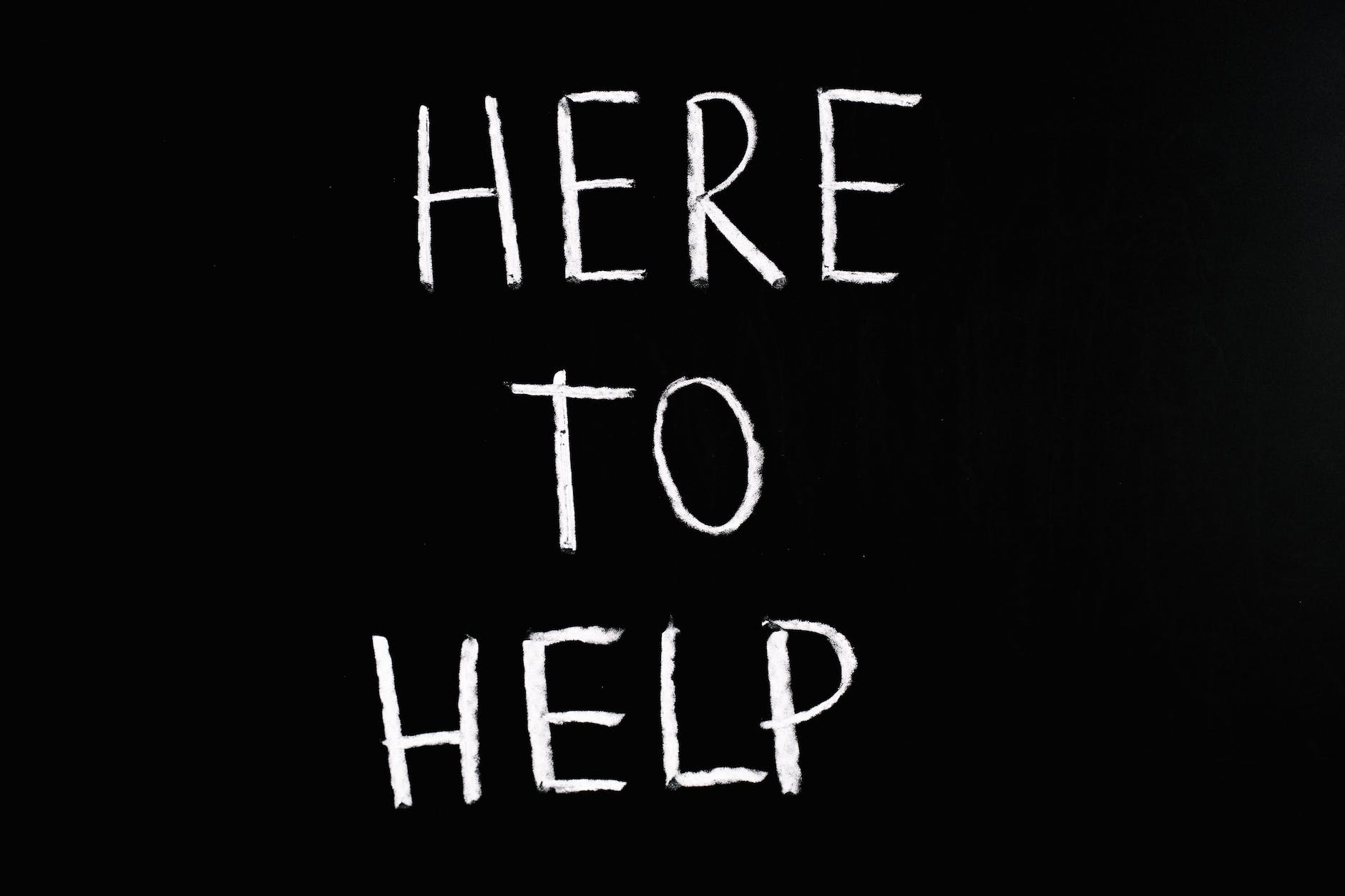Mental health clinics: my experience and what you need to know if you consider admission
(Please note that this article is based on a private mental health clinic in Germany, public ones may be different and they may differ across countries. Also, I am talking about an open unit hospital.)
Last year I was at the lowest point of my life. I was stuck in burnout, had just split up with my partner, we were in a pandemic, I felt so lonely, and depressed and I had no idea what to do with my life after the life I knew had fallen apart.
I was in therapy but felt like the weekly meetings with my therapist were never going to be able to get me out of that deep, black hole full of hopelessness. Luckily I eventually (after lots of back and forth) decided to get treatment in a private mental health clinic and it was the best step I could have taken. I am so grateful for my time there and everything I have learned. If you are considering this step, this article will hopefully answer some of your questions. In the following, you can read about my learnings and tips related to getting treatment in a mental health institution.

What is a mental health clinic?
You can imagine a mental clinic like a regular hospital where you would go to recover from a physical injury, e.g. a broken leg. Except that here you are recovering from a mental ‘injury’ and doctors and psychologists support you in your recovery by different types of therapies and if necessary, medication. Mental health clinics are helpful for those who are in acute crisis and for whom regular therapy is not enough support. A mental health clinic treats different mental disorders such as depression, anxiety, obsessive-compulsive disorder, personality disorders, eating disorders, substance abuse disorders, post-traumatic stress disorder, and others. There are inpatient and outpatient mental health clinics, where in the former you spend the day at the clinic but sleep at home and with the latter you ‘live’ at the clinic.
It’s important to note that this article refers to open unit mental health clinics where patients decide to go voluntarily. Not to confuse with closed unit psychiatries, which is for patients who are unfortunately so unwell that they might cause harm to themselves or others and are therefore not allowed to leave the clinic.
What are the benefits of getting treatment in a mental health clinic?
patient community
For me, it was first and foremost the patient community. It was so important for me to realize that others are struggling too, the exchange and the support from the other patients helped me so much to feel less alone with my struggles. It helped me to see that people who get mental health treatment are just like you and me, not some crazy maniacs. Later on myself and many of the other patients would say that the conversations we had outside of any therapies was one of the most beneficial aspects of our stay and many patients formed long-lasting connections and friendships.
What I found most interesting was that even though on the outside everyone had a different life story and different problems that come with it, it very often came down to the same underlying thought patterns that led to these problems such as, for example, having trouble setting boundaries. This might have been the most interesting learning for me there. You don’t go there to work on your specific life problems but instead, you discover the underlying causes of your problems which are usually unhealthy, often deeply-rooted beliefs and behavioral patterns.

learn useful tools
Second, the clinic provides you with self-help tools that will get you through your worst moments. After my time there I was able to create an SOS list with things I can do when I am stuck in a panic attack or very bad depression. Eventually, it all came down to getting out of your thoughts and back into your body. I have shared some of these tools I learned here: 3 SOS tips to get out of a panic attack.
provides structure
Third, being at the clinic provides you with a structure for your day. When you are depressed it can be difficult to motivate yourself to do anything. Getting treatment at a clinic supports you with a daily schedule which can help to bring back a sense of structure and normality – and, most importantly, there will always be someone who holds you accountable for your schedule. We are so influenced by our surroundings – if there is chaos in your outer world, this will likely transmit chaos to your inner world.
faster and more efficient healing
Fourth, no matter how many weeks you may spend there getting treatment, it gets you far ahead in your therapeutic process. The speed at which you can work on yourself in a clinic is not comparable to weekly or bi-weekly appointments with your therapist. So even though you won’t get out of there completely healed, the sooner you can un-tackle your constructive belief systems, the faster you can start and change them. What I learned about myself at the clinic in 6 weeks would have possibly taken years in regular therapy.
24/7 support
Finally, you have support at the clinic 24/7. There is medical staff available to talk to all day and all night which can be crucial during an intense period of suffering. Their job is literally to support you and to listen to you, so please do make use of this service. I was very reluctant to do this at first but over time realized how valuable it was to just talk to someone.

Two things I wish someone had told me before admission
1. DON’T EVER THINK YOU ARE NOT ‘BAD’ ENOUGH TO GO TO A CLINIC
I was aware of the existence of mental health clinics but I kept thinking “I am not bad enough to go to one, they will wonder what I am doing there, others are probably feeling way worse”. A big mistake. Looking back I wish I had gone to that clinic earlier. Many weeks passed and many times I was close to finally signing up. But then “better” days came along which made me feel like I could still manage by myself. Not going was some kind of proof that I didn’t completely lose control over my life and my mental health. Now I know that these thoughts were learned behaviors of having to get through obstacles alone, and not being able to accept help. And of course I was also scared of what I could expect in the clinic.
If you are stuck and thinking about getting treatment in a mental health clinic – my advice is to do it sooner rather than later. The more time we have to indulge in our self-destructive thoughts, the longer it will take us to get out of them. Unfortunately, it takes a lot of paperwork to apply for a mental health clinic and this can feel like an unbeatable obstacle when you are unstable. So if possible, please try and ask someone who you trust to help you with this.
2. DON’T GO WITH THE EXPECTATION OF BEING HEALED WHEN YOU GET OUT
I spent six weeks in the clinic, but I have met many other patients there who stayed shorter or longer. It is important to realize that you won’t be magically healed after your time there, no matter how long you stay. I am telling you this now to avoid disappointment and so that you can go there with the right expectations. However, spending time in a mental health clinic can still be extremely beneficial! So, if not complete healing, what can you expect instead?
- to hopefully stabilize enough to keep working on your mental health with the tools you learn there outside of the clinic environment
- to get to know yourself better and understand your limiting beliefs and destructive patterns
- (read about more the benefits here)
What does everyday life in a mental health clinic look like?
In my case, I attended group therapy three times a week and individual therapy once a week (Mondays-Fridays). On weekends we were off. Some patients got visits from their friends/family on weekends but we also spend a lot of time together during our free-time. We spent our free-time going into town, going out for dinner (the food at the clinic wasn’t the greatest), playing games, using the art room to get creative, sit together and chat or to go swimming/relaxing at the nearby lake (it was summer time).
In the group therapies, we were always with the same group of patients, however of course as time passed, the members of the group changed as patients came and went. Besides these talk therapy sessions, this clinic offered a variety of different types of therapies, depending on your personal needs and interests such as dance therapy, art therapy, daily meditation, yoga, nature-focused therapy, and movement therapy. They try to push you to do things that you’ve never tried or think you wouldn’t enjoy.
After breakfast at around 8, the first therapies started at 9 am. Most days we finished around 4 pm (with a lunch break in between) and were then free to do whatever we liked. At the end of every week, we were asked to write a report for our therapist about how the week went, the positives, the negatives, and our goals for the upcoming week.
Every Monday we met with all patients in a community plenum meeting where we were able to discuss topics that were relevant to everyone. We could e.g. bring up matters that bothered us and we also introduced new patients to the group and saw off the ones that were leaving.
One question I was curious about before going was whether I would be allowed to leave the clinic. Of course, you are free to leave the clinic at any moment since you are there voluntarily. The only two rules we had were that 1) we had to commit to abstaining from drinking alcohol during our whole stay there and 2) depending on your specific situation there are some restrictions to seeing friends/family members during the first two weeks because they may impact your therapeutic process.
Alternatives
If a stay in a mental health clinic feels too but of a step for you, consider finding a self-help group in your community instead. I think that the support that others with similar struggles can offer is underestimated, especially since mental illness is so isolating. This does not replace therapy and professional help but it can make a huge difference.
Takeaway
To sum it up, looking at my experience I can only highly recommend a stay at a mental health facility. I learned so much, I met such wonderful people, and despite this being such a dark chapter of my life, I have many beautiful memories from that time that I love to think back to. My time there was a huge step toward my recovery and I wouldn’t miss it for the world.
But of course, everybody is different and you need to feel if it is the right step for you to take.
If you have any doubts, concerns or questions about this topic, please get in touch with me, I would love to help: Contact
